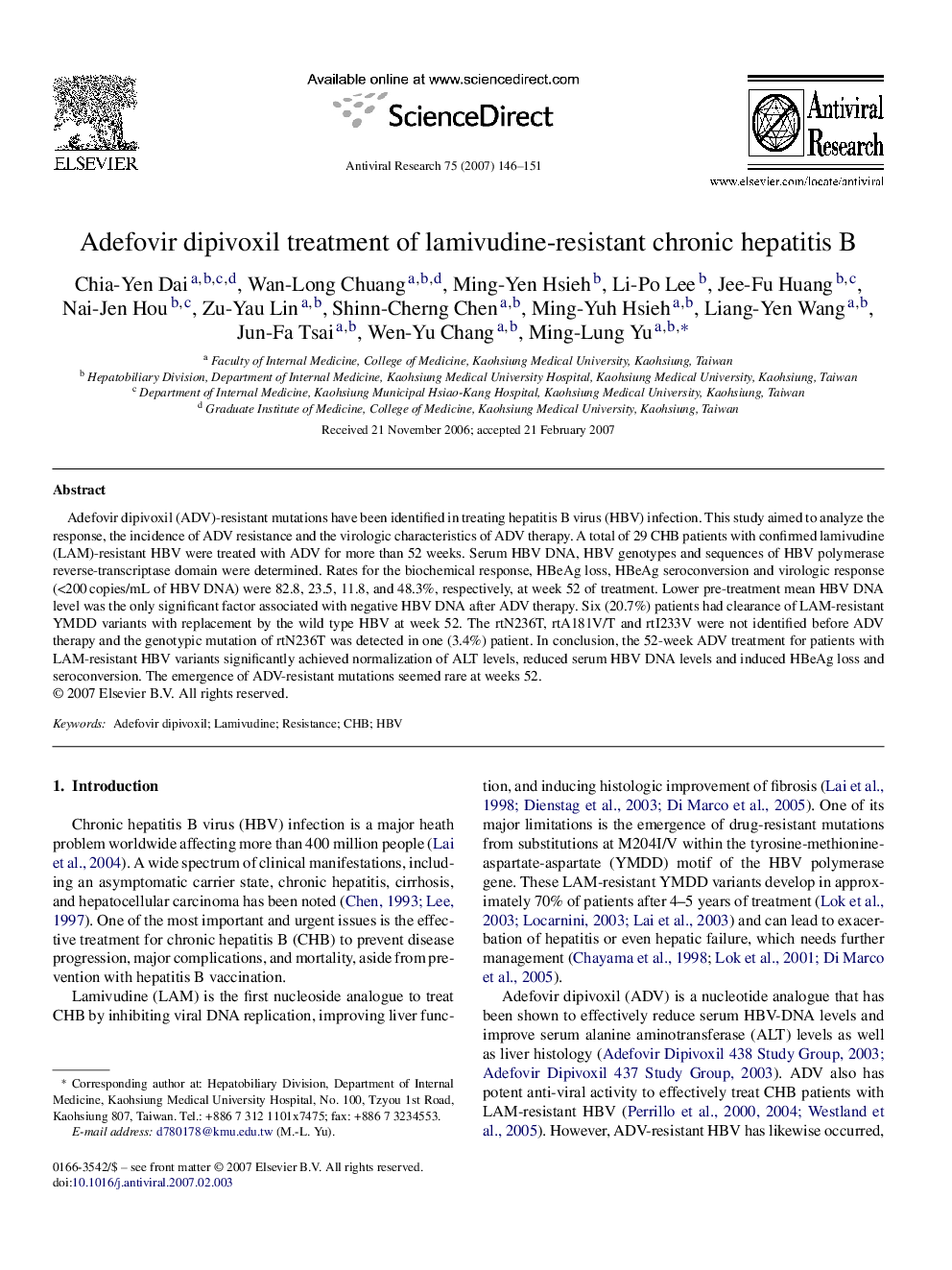| Article ID | Journal | Published Year | Pages | File Type |
|---|---|---|---|---|
| 2511376 | Antiviral Research | 2007 | 6 Pages |
Adefovir dipivoxil (ADV)-resistant mutations have been identified in treating hepatitis B virus (HBV) infection. This study aimed to analyze the response, the incidence of ADV resistance and the virologic characteristics of ADV therapy. A total of 29 CHB patients with confirmed lamivudine (LAM)-resistant HBV were treated with ADV for more than 52 weeks. Serum HBV DNA, HBV genotypes and sequences of HBV polymerase reverse-transcriptase domain were determined. Rates for the biochemical response, HBeAg loss, HBeAg seroconversion and virologic response (<200 copies/mL of HBV DNA) were 82.8, 23.5, 11.8, and 48.3%, respectively, at week 52 of treatment. Lower pre-treatment mean HBV DNA level was the only significant factor associated with negative HBV DNA after ADV therapy. Six (20.7%) patients had clearance of LAM-resistant YMDD variants with replacement by the wild type HBV at week 52. The rtN236T, rtA181V/T and rtI233V were not identified before ADV therapy and the genotypic mutation of rtN236T was detected in one (3.4%) patient. In conclusion, the 52-week ADV treatment for patients with LAM-resistant HBV variants significantly achieved normalization of ALT levels, reduced serum HBV DNA levels and induced HBeAg loss and seroconversion. The emergence of ADV-resistant mutations seemed rare at weeks 52.
